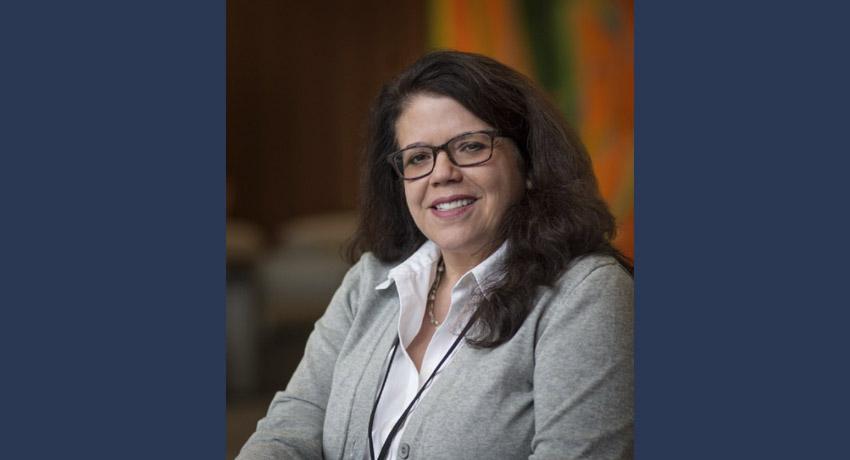Building a new agency — especially one as large and important as the Department of Children, Youth, and Families — is no easy task. Merging Children’s Administration, the Department of Early Learning and eventually the Juvenile Rehabilitation program, requires a considerable planning and oversight in order to be successful. To better understand how this integration is being shaped in what we’re calling the “mission project,” we spoke with Dr. Vickie Ybarra, the agency’s first director of research and policy.
To better appreciate Vickie’s approach to this work, it’s useful to dive a bit into her background. Vickie has been a leader in transformative social services since her career began as a home-visiting nurse, after receiving a bachelor’s in nursing and a master’s in public health from the University of Washington. Her focus has always balanced the boots-on-the-ground knowledge with a systems-level thinking, and this understanding was aided by a second master’s followed by a PhD, both focused on public policy from the University of New Mexico.
Outside of work hours, Vickie has had multiple policy leadership roles to improve outcomes for Washington’s youth, such as serving on the Yakima School Board and as the chair of a gubernatorial council working to eliminate health disparities in communities. She has even published research on public policy and family well-being, which is at the core of DCYF’s mission. She’ll be the first to tell you that she is motivated and passionate about advocating for better outcomes for high-need families, based on practices proven to succeed.
As the new agency takes shape, Vickie says she hopes to support communities in Washington by maintaining a “relentless commitment to improving outcomes for children.” The creation of DCYF reflects the consensus that a single department devoted exclusively to youth will better serve and support Washington families. There is broad agreement in the belief that the integration of early learning, child welfare and juvenile justice services will facilitate more efficient processes for practitioners and providers. In fact, Vickie is “most excited about the opportunity to design the alignment of these services,” in what we call an integrated service approach. This will allow us to create continuums of service delivery that center on the child and family, not on the funding stream for the service or the back-office organization of the agency.
As the director of Research and Policy, Vickie is organizing the efforts of the Office of Innovation, Alignment, and Accountability to carry out several processes to ensure the mission of DCYF is adhered to and maintained as the agency evolves, guided by the vision outlined in House Bill 1661, “…to improve service delivery and outcomes, existing services must be restructured into a comprehensive agency dedicated to the safety, development, and well-being of children that emphasizes prevention, early childhood development, and early intervention, and supporting parents to be their children’s first and most important teachers.”
In line with that vision, Vickie sees the work of building the DCYF within the framework of the following principles:
- A relentless focus on outcomes for children;
- A commitment to collaboration and transparency;
- A commitment to using data to inform and evaluate reforms, leveraging and aligning current services with desired child outcomes; and
- A focus on supporting staff as they contribute to the agency’s goals and outcomes.
All of this work is driven by DCYF Secretary Ross Hunter’s “insatiable need for data and evidence,” which requires that all ideas and proposals be based on or supported by reliable data, data that indicates past success or have a high probability of being effective in the future. When asked what it is like working with Ross, Vickie explained, “It’s sometimes a challenge to keep up with his energy and vision. … But I enjoy working with him very much. I appreciate especially his focused commitment to improving outcomes for children.”
It’s not often that a new government agency is created, and with this new department, Washington state has a seminal opportunity to better serve its children and youth. Although small, the current team at DCYF is excited to move forward. With a director of Research and Policy who’s as motivated as Vickie, we are on the right path. We must recognize and value this “once-in-a-generation opportunity to change the structure of how services are delivered, and consequently the live chances for thousands of children,” as Vickie says.

